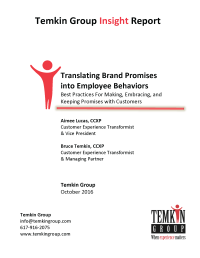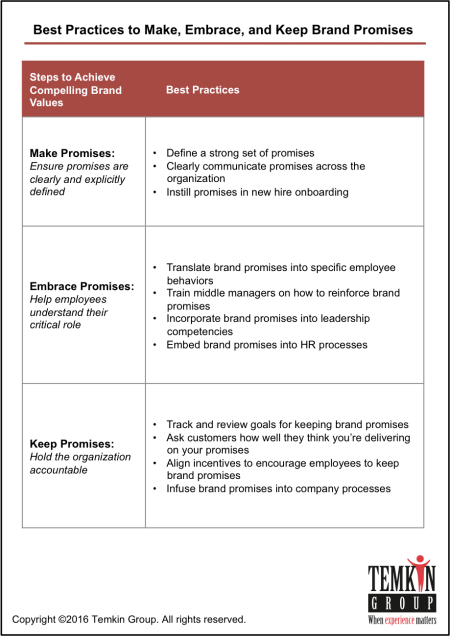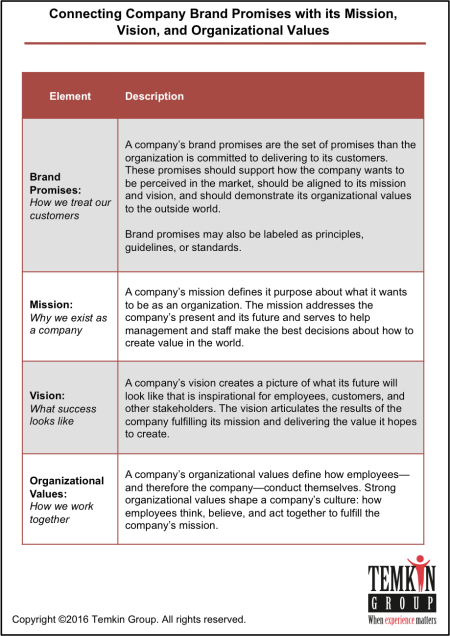Report: Translating Brand Promises into Employee Behaviors
October 4, 2016 Leave a comment
 We just published a Temkin Group report, Translating Brand Promises into Employee Behaviors. Here’s the executive summary:
We just published a Temkin Group report, Translating Brand Promises into Employee Behaviors. Here’s the executive summary:
Temkin Group has found that the companies that deliver great customer experience use their brand as a blueprint for how they treat customers, which is why Compelling Brand Values is one of our four customer experience core competencies. Too often organizations put a lot of energy into communicating the brand externally, only to fall short on connecting employees to their role in keeping brand promises. And when employees aren’t connected to these promises, they tend to be less proactive, to act inconsistently, and to care less about their work. In this report, we describe three steps that companies can use to translate their brand promises into employee behaviors: Make promises, Embrace promises, and Keep promises. To illustrate this approach, we share over 20 examples of best practices from companies including Anthem, A&W Food Services of Canada, the city of Centennial, Oklahoma City Thunder, and Quest Diagnostics. To evaluate how well your organization follows this approach, use Temkin Group’s Compelling Brand Promises Assessment.
Here’s are two of the 15 graphics in the report:

